
Mihály
Historical movie on the life of András Hadik

Man
A writer in self-exile is haunted by the memory of his long-lost love. Mysterious events and an unexpected visitor are about to offer him a chance to relieve his pain. Based on the famous poem of Edgar Allan Poe: The Raven.

Abel Nagy works as a sommelier in the restaurant. He recommends and pairs wine with the food ordered. This time guests put him to the test.
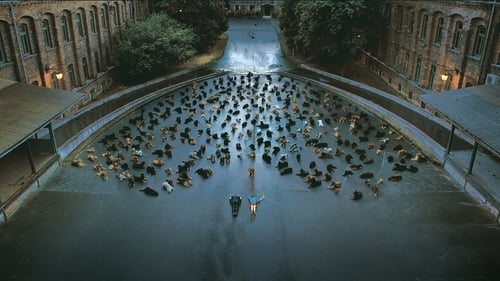
Homeless man
Главная героиня после отъезда матери в Австралию осталась с отцом, а отец не рад ее собаке Хагену. К тому же, пес не поставлен на учет, и за ним начинает охоту санитарная инспекция. Сбежав от хозяйки, Хаген переживает серию передряг, а потом оказывается в собачьем приюте, где поднимает восстание против бесчеловечности тех, кто там работает.

Himself
A documentary about the making of The Turin Horse, the last film directed by Hungarian master Béla Tarr.

János
Andor Czettl, in his early sixties, visits the secret service archives one day to read into the reports about himself and discovers a shocking fact. His very best friend János Pásztor was an informer, spying on him and writing reports about him for decades. Sára Cserhalmi's first feature focuses not so much on the actual problem of informing and betrayal as on the contradictory relationship of the two protagonists. It avoids any final judgments. First and foremost, it seeks answers to questions like how an informer can live in our present times and how the one being reported on can cope with this state. Can a close friendship that began decades ago last if such betrayal comes to light? How can someone live and cope with this fact?

Ohlsdorfer
В 1889 году на улице итальянского города Турина случилось странное происшествие. Кучер хлестал кнутом свою старую лошадь, которая отказывалась тронуться с места. Неожиданно к повозке подбежал хорошо одетый господин с пышными усами и обнял животное за шею, при этом горько зарыдав. Это был не кто иной, как всемирно известный философ Фридрих Ницше. Его с трудом увели от лошади, а когда привели домой, выяснилось, что он не в себе. Ницше поместили в лечебницу для душевнобольных, где он провел остаток жизни… Но что же случилось с лошадью и ее хозяином? Об этом и расскажет фильм.


Father
Love makes a bad relationship between father and son all the more rancorous in this drama from Hungarian director Viktor Oszkar Nagy. A convict (Janos Derzsi) returns home after a long stretch in prison to a less than enthusiastic welcome; his son (Tamas Ravasz), now in his late teens, was left to fend for himself and tend the family farm on his own after his dad went away, and the youngster blames his father for his mother's untimely death. The father wants to mend his relationship with his son, but the young man makes no secret of his contempt for his dad, and only grudgingly allows him back on the farm.

Karcsi, a Roma policeman, lives with Eva, a Swede. One day he is called to the scene of the murder of a wealthy trafficker named Schulter. He begins to investigate the crime, interrogate neighbours and suspects, and untangle a complex situation - one that he, himself, complicates even further. For he is a gypsy, who despite being adopted and raised by "regular" Hungarians, has his nose rubbed in his minority status every day. The film, which is based on the novel by Ákos Kertész, is a shrewd genre work full of dusky humour and surreal situations. Tabló follows a vivid succession of strange images that eventually lead to the emergence of the central story about a charismatic police officer on a tireless quest for the truth, though he must fight against virtually everyone and is just as fallible as the next person. Tabló makes a statement on the issue of race and racism - or, indeed, relations between any minority and majority.

Vidra
Gabriel Ventuza lives the peaceful life of a herbalist, growing and cultivating medical herbs in Italy. One day he receives an order from his older brother who is just out of prison for one day. Gabriel should go to the remote little town of Bogdanski Dolina in Far-Eastern Europe, the place of their childhood and take out the mortal remains of their father, the late people smuggler, the famous Victor Ventuza. Gabriel leaves his "eventless" life behind and goes to accomplish his mission. He is robbed on the way, his belongings, passport, money and even his clothes are stolen and finds himself in a small closed town surrounded by hills of stinking toxic waste, where strange priests rule and fear keeps people quiet, producing a general atmosphere of insecurity.

A story of a Jewish-Hungarian-Serbian family. The plot is centered about trying of an adult son to reconstruct his childhood dream of and memories. Looms, but a sunken world, the central European town with its figures, the way to experiencing deep and see a sensitive boy, his father, who by their fears that penetrate to the bone and the final humiliation of acting madness escapes and becomes a lonely, pathetic buffoon in the drama of life.
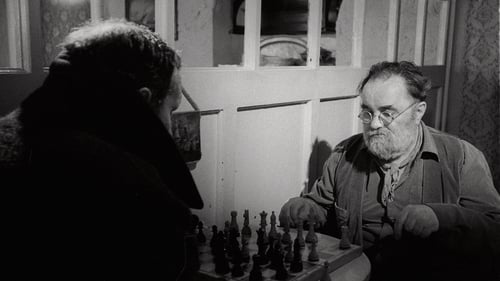
Brown
По одноименному роману бельгийского писателя Жоржа Сименона «L'Homme de Londres» (1933). Маллойн, стрелочник железнодорожной станции в порту, живёт в ветхой квартире со своей женой Камелией и дочерью Генриеттой. Однажды во время ночной смены он становится свидетелем происходящей на причале драки. Из окна своей башни Маллойн видит, как один из участников падает в воду вместе с портфелем, а второй спешит скрыться. Маллойн подбирает портфель, в котором находится крупная денежная сумма. Маллойн прячет деньги и никому не рассказывает о них. На следующий день он замечает следящего за ним Брауна. Вечером Браун безуспешно ищет портфель около места вчерашней драки и замечает Маллойна в окне башни...

Juli apja
Some of the most symbolic moments of the 1956 Revolution in Hungary were the tooth-and-nail battles fought by the so-called 'Pest Lads' who dared to defy odds by taking on the panzers of one of the world's superpowers. The story begins on October 23rd, 1956 and ends on November 4th of the same year. Juli is Totya's girlfriend but also loves Gábor. Their love triangle will have to endure the trials and tribulations of these stirring times. A group of boys living in the outskirts of the capital are playing football in abandoned lot when Juli, a ticket inspector, brings news of protests breaking out in the city. Only Gábor accompanies her into town and together they become part of this historical event. At dawn, when the boys too come under fire from Soviet forces, they decide to join in the fight.
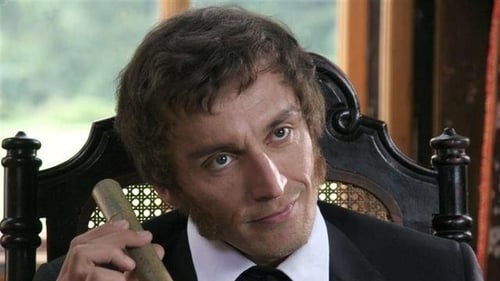
Count Falussy
1839. The discontented noblemen assemble at the country estate of count Gábor Falussy, on the pretext of a boar hunt. Also an English engineer arrives for the sake of constructing the railway line leading up to the count’s quarry.

Sándor Tüdő
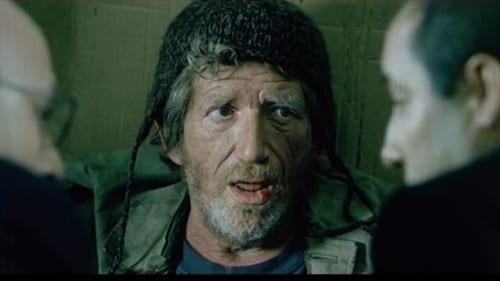
Hozsó
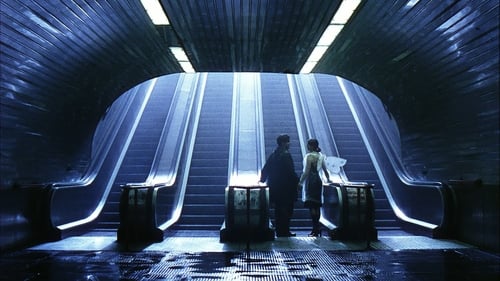
Драма, действие которой происходит в венгерском метро, а главный герой — Бульчу, работает там контролером. В метро он проводит все свое время, работает и спит, по непонятным причинам он изолировал себя от внешнего мира. Но, однажды среди пассажиров он встречает ту, которая все изменит…

Taxisofőr
Iván is living in exile from Hungary when he receives word that an old flame is ill. His return to Budapest rekindles old memories and reopens old wounds.

This epic story takes place between 1820 and 1860 during the Habsburg Monarchy, and portrays the life one of the greatest Hungarian aristocrats - Count Széchenyi - who was born with extra-ordinary mental and spiritual talents. In the years following the fall of Napoleon the young count Széchenyi irresponsibly seduces his brother's wife, and the consequent scandal ruins his career as an army officer. After the sudden death of his humiliated lover Count Széchenyi drastically changes his character from that of a shallow young man into a responsible nobleman seeking to conquer his fate by creating great achievements in his remaining life.

1942. Owing to a stolen mink coat, Süti, the young poet and journalist, gets acquainted with Katalin, the idolated singer. Before being drafted to labour service, he shows the actress the song he composed for her, entitled Smouldering Cigarette.
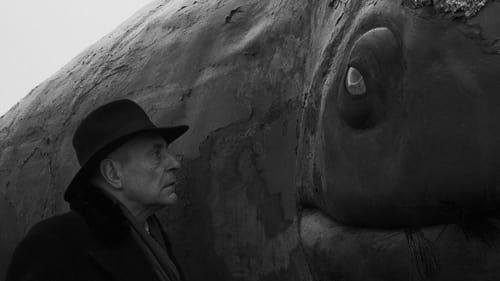
Man In The Broad-Cloth Coat
Янош работает на почте, увлекается астрономией и помогает по хозяйству своему дяде-музыковеду, который убежден: музыкальная гармония, возникшая в XVII веке благодаря композитору Андреасу Веркмейстеру и сохранившаяся по сей день, неправильная и фальшивая. А если нет настоящей гармонии в музыке — ее нет и в мире, и в существовании отдельного человека, и в жизни провинциального венгерского городка. Янош видит, что вокруг сгущается атмосфера страха, ненависти и безумия, что город — на пороге большой неотвратимой беды.

The tumultuous history of Hungary through the twentieth century is viewed through the saga of the Hungarian-Jewish, furniture-manufacturing family, the Vendels. After taking over the once successful, but now failing, family business in the 1930s, the family patriarch's dashing elder son decides that the family needs an infusion of new blood. A matchmaker presents him with a photo of a pretty German nursery school teacher. When the two meet, they instantly fall in love, but because Hungary has an alliance with Germany, and the Third Reich prohibits marriage between Gentiles and Jews, the couple must hide their union. Their marriage ultimately stands as a dark foreshadowing of rougher times to come as troubles ensue with the advent of World War II, when the family, its employees and servants must retreat to the basement, where the shop emerges increasingly as a refuge in a world growing more violent and less tolerant.

A férfi
Свой второй (и последний) фильм венгерский режиссер Дьёрдь Фехер снял по роману Джеймса Кейна «Почтальон всегда звонит дважды». Действие в фильме перенесено в Венгрию 30-х годов. Герой Яноша Держи работает помощником у хозяина автомастерской (Джоко Росич) и влюбляется в его жену (Ильдико Баншаги). Любовники вместе планируют убийство мужа. После того, как их план провалился, они решают отказаться от своей идеи и просто уйти вдвоем. Но затем совершают вторую попытку, оказавшуюся более успешной…

The story of a quirky love affair between Angi, an independent, no-nonsense social worker from a working-class district of Budapest and, Ildikó, a young mother who recently separated from her husband.
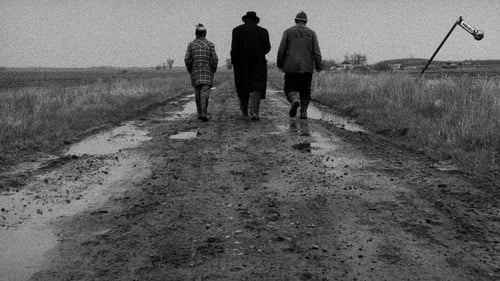
Kráner
Действие фильма разворачивается на территории фермы, доживающей свои последние дни. Несколько ее жителей решают уйти, похитив деньги, вырученные всеми участниками коммуны перед ее закрытием. Однако их планы нарушают слухи о появлении красноречивого и харизматичного Иримиаша, пропавшего полтора года назад и считавшегося погибшим.

Pál Utrius is twenty three years old and in love with his sister.

Hungary after the changes. Jutka loses her job and even her marriage is ruined, since her husband gets involved with the daughter of an influential businessman. Jutka moves in with a female friend, Dóra likewise has to face a difficult choice.

Imre Horváth and his friends gather to celebrate his wife's birthday. They are confused because of the changes in the country's politics and want Horváth to be much more active politically, but he is more concerned about his affair with his best friend's daughter.

Янчо в этом фильме дает крайне пессимистический прогноз относительно актуальных событий современности. Одной из сюжетных линий картины становится просмотр телевизионных новостей из Москвы, свидетельствующих о политическом хаосе. В стране произошел политический переворот, власть оказывается в руках некоего Комитета спасения, Михаил Горбачев арестован и казнен. Вскоре в Венгрию вновь входят советские танки и всех убивают.

K.
In this grim story, three murders of young girls are committed in a similar manner, and their bodies are all found in the woods. The only suspect, a young man assumed to be a paedophile, commits suicide during the investigation. A policeman becomes obsessed with solving the mystery of this serial killer and he continues to investigate even after he has been taken off the case.

Attila
Margó and Ildi are good friends. Margó lives with her simple, conservative parents, her fiancé is a roadie, her lover has been in prison for two years. Ildi was a pupil of a reformatory school, she buried an Araba husband already and her Rumanian partner is living in Paris. She lives together with a Yugoslavian man in a rented flat. Both are models at the Scholl for Fine Arts, attend an evening school and earn their money by selling their bodies. The lover of Margó, Attila is suddenly released. Margó and Ildi want to get rid of him, but Attila does not let them do that...

menekülő ember
Eckermann (Laszlo Kistamas) is a listless computer whiz who spends most of his time lounging in a bathtub holding imaginary conversations with cartoon characters usually more popular with children than grownups. He has some friends who want to use his skills to steal some money from a local gambling joint. He works out a scheme for his friends and returns to his tub. At some point along the way, he is joined in the water by a lovely Czech refugee, who (perhaps inadvertently) makes it possible for him to die there.

Arne
In a small port town at the end of the 19th century children are disappearing. A mysterious man in black who stalks the town may be Death itself. And nine-year-old Laurin is suffering terrifying dreams and hallucinations of a man carrying a sack and frightened children calling for help from behind closed windows.

1629, Transylvania: Reigning prince Bethlen Gábor has Don Diego, the Spanish chronicle knight be brought to his court in order to make him record his life and deeds for posterity.
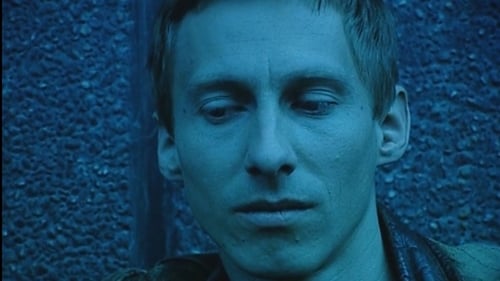
Комедия о жизни молодых рабочих семей в блочных квартирах, о молодых женщинах, находящихся в послеродовом отпуске и умирающих со скуки в спальных районах. Поразительная монотонность, одинаковые дома с тонкими стенами, низкими потолками, бледно-розовыми коридорами и множеством других знаков вопиющей безвкусицы. Кафе в этом микрорайоне — единственное место для встреч, здесь открывается широкое поле для шантажа и сплетен. Все всё видят, так что не удивительно, что такая публичность пробуждает подавляемую, грубую эротику, порнографические мечты, создает условия для насилия.

The unskilled, jack-of-all-trades András and his wife, Éva are put in jail for serial work-place thefts, -committed in order to try to ensure a normal living standard for his family - and for aggravated assault committed for self-defence, respectively. Their two small children are put in state care, then given to foster parents. András, still in prison, commits everything to help the released Éva get hold of an apartment and get their children back so that when he will have served his term the family could be together again.

Factory manager
Blind luck ties the fate of two people together.

János, Hédi fia
In this dense setting, the inhabitants of a large, claustrophobic apartment reveal their darkest secrets, fears, obsessions and hostilities.

Lieutenant Radovics
When hunting, Zrínyi Miklós finds an Angel with a broken wing. He takes him for a heavenly message and carries him to his castle for cure. Lords and priests come to Zrínyi's court, one after the other, to see Angel. The occasion is appropriate for the ban to win them over to his plan: they should unite their forces to fight for the country's independence.

A katonatiszt
A priest arrives in a village and give advice and comfort to different people. He meets a wheelchair-bound former representative of the Communist party, a woman who is dying of tuberculosis and an astronomer who sings in a punk band.

A Hungarian TV version of the play shot in just two takes.

The general practitioner Balla and his wife abandoning her higher education begin their common life in the small mountain village in the hope of quick enrichment and return to the capital. Despite Éva and Emma, the two school mistresses longing for love and Demeter, the dove-keeper obsessed with a desire for flight life is boring in the country.
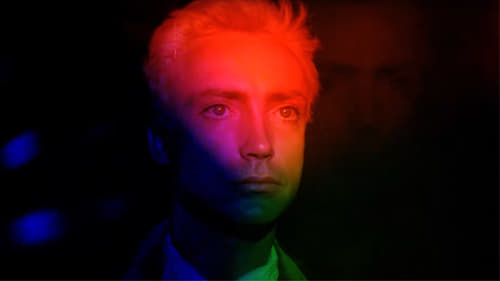
Narcisus and Psyche is based on a novel by Sandor Weores which was adapted by Vilmos Csaplar and director Gabor Body for a feature-length film. Borrowing the character of Psyche from mythology and placing her in Europe in the 19th century, the authors give her a "modern" life. She is an attractive young woman - and remains so throughout the film, in spite of one hardship after another. Psyche is libidinous, and her prurient interests shock her staid contemporaries.

Gábor, Irén férje
Irén and Attila, a not-so-young couple, are in love. All they want is a flat of their own where they could live together. Unfortunately, Hungary in the 70s is no place for dreams.

Gelencsér Jóska
The second in command of a group of highwaymen, the only ones left of Hungary's freedom fighters in the late 17th century, has a wife who really, really wants him to come home and stop gallivanting around the countryside. The only way he can figure to do this is to inform on the group to the authorities in as harmless a manner as possible. Unfortunately, these betrayals cause the group to lose many men, and the traitor grows fearful of the authorities. He gives officials every scrap of information he has in return for a full pardon, and he returns home. His wife, when she hears of these events, is infuriated. Such betrayal is far in excess of anything she can condone, and she kills him. ~ Clarke Fountain, Rovi

Valentin
Set against the backdrop of a small traveling circus, a European clown and his 5-year-old daughter lead each other through the everyday mysteries of love, magic and loss. Based on the long poem “The Clown” by Anthony Lucero.






































